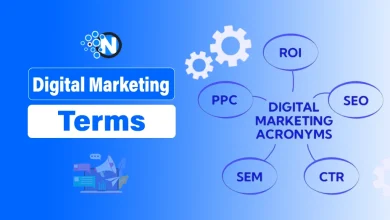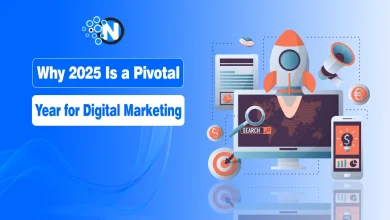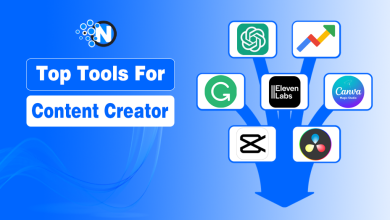The 10 Most In-Demand Digital Marketing Skills in 2026
Digital marketing today is about solving real problems. Skills like intent-based SEO, helpful content creation, data-driven decisions, smart use of AI, and conversion optimization matter most because they build trust, improve rankings, and drive real results.

Digital marketing isn’t a single trick; it’s a toolkit. Over the past 15 years, I’ve seen trends rise and fall, but the marketers who succeed are those who master both the human side of communication and the technical side of data.
It’s about understanding people, using data responsibly, and making smart decisions in a search landscape shaped by AI, automation, and trust signals. If you’re building a career in digital marketing or trying to grow a business online, these are the skills that actually matter now.
Below is a collection of core digital marketing skills that I’ve tested, refined, and seen prove their value time and again in building successful digital strategies.
10 Essential Digital Marketing Skills to Learn

Design by NogenTech.org
1. Search Engine Optimization (SEO)
SEO is no longer just about keywords and backlinks. Now, it’s all about AI-powered search, voice queries, zero-click results, and semantic search intent. SEO involves optimizing a website, online store, or blog to rank higher in search engine results pages to drive more organic traffic.
- Google’s Search Generative Experience (SGE): Learn how AI-powered snippets and content summaries change organic click-through rates.
- Voice and visual search optimization.
- EEAT compliance (Experience, Expertise, Authoritativeness, Trustworthiness).
- Entity-based SEO and semantic schema markup.
- AI-enhanced SEO tools like Clearscope, SurferSEO, and ChatGPT integrations for SEO workflows.
- Conducting thorough keyword research
- Building high-quality backlinks to improve the website’s authority.
2. Social Media Marketing
Social media marketing has become essential to every digital marketer’s arsenal. The social media platforms allow businesses to connect with their target audience, build brand awareness, and drive traffic to their website.
The social platforms are shifting from engagement tools to commerce-first ecosystems. TikTok Shop, Meta Ads Manager, Threads, and AI content creators are redefining strategy.
Key learnings about Social Media
- Use Generative AI (e.g., Meta’s Imagine or Canva Magic Studio) for scalable content.
- Partner with micro and nano influencers for higher trust and ROI.
- Tap into social shopping (TikTok Shop, Instagram Checkout).
- Explore decentralized social media platforms (e.g., Mastodon, Bluesky) for niche targeting.
3. Content Marketing
Content marketing is another essential digital marketing skill every marketer should develop. It involves creating and distributing valuable content across different digital channels to attract and engage a target audience.
For online marketers, it is important to have strong writing skills and create informative and compelling content that sounds with the target audience. A great content marketing professional is an expert in,
- Creating high-value, well-researched blog posts, whitepapers, and guides.
- Developing interactive content (quizzes, AR try-ons, calculators).
- Creating AI-driven dynamic content based on user behavior (e.g., personalized landing pages).
- Repurposing content into podcasts, reels, carousels, and emails.
Businesses will continue to use content marketing to build brand awareness and establish authority in their industry.
📌 Fact: Also, utilize AI-assisted content creation, but balance it with human insight for credibility and tone.
4. Email Marketing
Email marketing remains one of the highest-ROI digital marketing tools, with $36 return for every $1 spent. It involves sending promotional messages to a targeted list of subscribers, including newsletters, promotional offers, and other types of email content.
- Build segmented and permission-based email lists.
- Use personalization techniques to address user preferences and behaviors.
- Create compelling subject lines and CTAs that drive action.
- Automate drip campaigns for onboarding, cart abandonment, and post-purchase engagement.
Tools like Mailchimp, Klaviyo, and ConvertKit offer advanced automation and real-time analytics.
📌 Fact: Email marketing has an average open rate of 21.5% across industries which also outperforms social media in direct engagement.
5. Data Analysis
Data analysis is an essential component of digital marketing and every marketer must learn advanced data analytics skills to stand out.
The Data analysis helps in:
- Understanding user behavior across platforms and devices.
- Optimizing campaign performance through A/B testing and conversion tracking.
- Reporting key metrics like CTR, bounce rate, ROAS, and customer lifetime value.
Master tools like:
- Google Analytics 4 (GA4)
- Looker Studio (formerly Data Studio)
- Hotjar for heatmaps
- CRM analytics tools
Marketers must have a deep understanding of different analytics tools and techniques. They must also learn to use Google Analytics, social media analytics tools, and other data visualization tools to gain insights into user behavior and campaign performance.
📌 Fact: Data storytelling is as important as data interpretation. The presentation of insights clearly helps in executive decision-making.
6. Mobile Marketing
With the increasing use of mobile devices, mobile marketing has become an essential component of digital marketing. It is all about lightweight, accessible, and immersive mobile-first experiences.
Key aspects of mobile marketing include:
- Designing responsive websites and landing pages.
- Using SMS campaigns for direct user engagement.
- Investing in progressive web apps (PWAs) to bridge mobile web and app experiences.
- Creating content optimized for voice search and local queries.
- Incorporate location-based or global marketing for hyper-targeted messaging.
7. Video Marketing
Video marketing is an increasingly popular form of digital marketing as people spend many hours watching videos daily. Users prefer snackable, emotionally resonant content. Platforms reward creators who hook viewers in the first 3 seconds.
Must-have skills:
- Shoot and edit engaging 60-second reels using video editing tools like CapCut, Clipfly, and Filmora.
- Use AI voiceovers, subtitles, and templates for mass production.
- Explore YouTube Shorts monetization and AI voice cloning for multilingual content.
- Master live commerce streaming and behind-the-scenes storytelling.
Digital marketers must be skilled at creating videos that tell a story, using humor and different video formats to keep the audience engaged. They must also learn to optimize video content across different digital channels and social media platforms to drive more viewers and boost conversions.
8. Content Planning
Strategic content planning is the process of creating a plan to guide the content marketing team for campaigns. Content without strategy is like sailing without a compass. In 2026, marketers must:
- Use tools like Notion, Monday, or Trello for content calendars.
- Sync content clusters with target keywords and search intent.
- Conduct quarterly content audits with SEO insights.
- Adapt your plan for AI Search Features and changing SERP real estate.
A structured approach ensures consistent publishing and brand messaging across platforms. You can also review existing content to assess its performance and relevance and identify what can be improved. After auditing existing content improve it with the latest marketing trends to achieve your goals.
💡Pro Tip: Plan content around Google’s “Things To Know” and “Perspectives” sections in SGE..
9. Automation
Now everywhere is using software for different tasks. A digital marketer must have an understanding of different automation tools and software to streamline marketing tasks and save time. Automation is moving beyond basic triggers to intelligent, behavior-based orchestration.
Must-learn platforms:
- Zapier, Make.com, and HubSpot for multichannel automation.
- Implement lead scoring, lifecycle tracking, and smart segmentation.
- Use AI chatbots like Intercom and Drift for real-time conversion.
Some useful marketing automation skills include:
- The ability to execute projects from beginning to end.
- You must know how to use data to develop actionable insights.
- Automating social media posting, A/B testing, and retargeting ads.
- Expert-level knowledge and experience with marketing tools.
💡Pro Tip: Automation is not about doing less, it’s about freeing up time for strategy and creativity.
10. Brand Development
Brand Development is an important factor in improving customer experience through brand reputation. Consumers support brands they relate to, not just products. Your brand voice must cut through the noise.
In your digital marketing skills, you can include creating a brand strategy that helps you reach your target audience, build brand awareness, and establish a strong brand identity.
- Build creator-led brand collaborations (UGC + trust = impact).
- Develop AR filters and branded lenses for experiential engagement.
- Maintain consistent brand messaging across email, web, podcast, and social.
- Monitor brand sentiment using tools like Brandwatch or Sprout Social.
“Brands that build emotional connections outperform competitors by 85% in revenue growth.”
Master the Skills That Matter Most
Digital marketing in 2026 isn’t about chasing every shiny trend — it’s about mastering the skills that consistently drive impact. From creativity and adaptability to data analysis and AI‑powered strategies, the professionals who thrive are those who balance technical expertise with human insight.
After 15 years in this industry, I’ve seen one truth hold steady: the marketers who invest in learning, refining, and applying these core skills are the ones who build lasting authority and future‑proof their careers.
People Also Ask
Which digital marketing skill has the highest demand in 2026?
Data-driven marketing and AI-powered tools are leading due to their impact on targeting and personalization.
Do I need technical knowledge for digital marketing?
Yes because understanding analytics, automation, and basic tech tools boosts effectiveness in actions.
Can soft skills help in digital marketing?
Yes, skills like creativity, communication, and adaptability are just as vital as technical expertise.
Is digital marketing a good long-term career in 2026?
Absolutely, it offers various roles, high demand, and global opportunities.
How can beginners start learning digital marketing skills?
Start with free online resources, certifications, and practical projects to gain hands-on experience.




